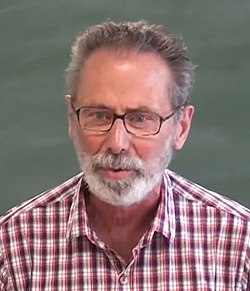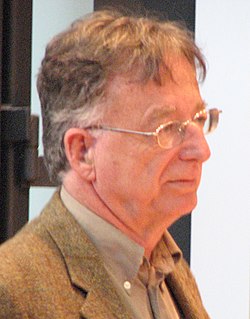–Γ–Ω–Η―¹–Ψ–Κ –Μ–Α―É―Ä–Β–Α―²–Ψ–≤ –ê–±–Β–Μ–Β–≤―¹–Κ–Ψ–Ι –Ω―Ä–Β–Φ–Η–Η –½–¥–Α–Ϋ–Η–Β –ù–Ψ―Ä–≤–Β–Ε―¹–Κ–Ψ–Ι –Α–Κ–Α–¥–Β–Φ–Η–Η –Ϋ–Α―É–Κ , –Ψ―²–≤–Β―΅–Α―é―â–Β–Ι –Ζ–Α –Β–Ε–Β–≥–Ψ–¥–Ϋ–Ψ–Β –≤―Ä―É―΅–Β–Ϋ–Η–Β –ê–±–Β–Μ–Β–≤―¹–Κ–Ψ–Ι –Ω―Ä–Β–Φ–Η–Η –Ω–Ψ –Φ–Α―²–Β–Φ–Α―²–Η–Κ–Β –€–Β–Ε–¥―É–Ϋ–Α―Ä–Ψ–¥–Ϋ–Α―è –ê–±–Β–Μ–Β–≤―¹–Κ–Α―è –Ω―Ä–Β–Φ–Η―è –Ω―Ä–Α–≤–Η―²–Β–Μ―¨―¹―²–≤–Ψ–Φ –ù–Ψ―Ä–≤–Β–≥–Η–Η –≤ 2002 –≥–Ψ–¥―É[ 1] –Ϋ–Ψ―Ä–≤–Β–Ε―¹–Κ–Ψ–≥–Ψ –Φ–Α―²–Β–Φ–Α―²–Η–Κ–Α –ù–Η–Μ―¨―¹–Α –Ξ–Β–Ϋ―Ä–Η–Κ–Α –ê–±–Β–Μ―è [ 2] –ù–Ψ―Ä–≤–Β–Ε―¹–Κ–Ψ–Ι –Α–Κ–Α–¥–Β–Φ–Η–Β–Ι –Ϋ–Α―É–Κ –≤―΄–¥–Α―é―â–Η–Φ―¹―è –Φ–Α―²–Β–Φ–Α―²–Η–Κ–Α–Φ ―¹–Ψ–≤―Ä–Β–Φ–Β–Ϋ–Ϋ–Ψ―¹―²–Η[ 1] [ 2]
–ü―Ä–Α–≤–Ψ –Ϋ–Ψ–Φ–Η–Ϋ–Α―Ü–Η–Η –Ϋ–Α –Ω―Ä–Β–Φ–Η―é –Ψ―²–Κ―Ä―΄―²–Ψ –¥–Μ―è –≤―¹–Β―Ö, –Κ―Ä–Α–Ι–Ϋ–Η–Ι ―¹―Ä–Ψ–Κ βÄî 15 ―¹–Β–Ϋ―²―è–±―Ä―è –Κ–Α–Ε–¥–Ψ–≥–Ψ –≥–Ψ–¥–Α. –ù–Ψ–Φ–Η–Ϋ–Α―Ü–Η―è –Ϋ–Β –¥–Ψ–Μ–Ε–Ϋ–Α –±―΄―²―¨ –Η–Ζ–≤–Β―¹―²–Ϋ–Α –Κ–Α–Ϋ–¥–Η–¥–Α―²―É, ―¹–Α–Φ–Ψ–≤―΄–¥–≤–Η–Ε–Β–Ϋ–Η―è –Ζ–Α–Ω―Ä–Β―â–Β–Ϋ―΄. –ü―Ä–Β–Φ–Η―è –Φ–Ψ–Ε–Β―² –±―΄―²―¨ –Ω―Ä–Η―¹―É–Ε–¥–Β–Ϋ–Α –Κ–Α–Κ –Ψ–¥–Ϋ–Ψ–Φ―É ―΅–Β–Μ–Ψ–≤–Β–Κ―É, ―²–Α–Κ –Η ―Ä–Α–Ζ–¥–Β–Μ–Β–Ϋ–Α –Φ–Β–Ε–¥―É –Ϋ–Β―¹–Κ–Ψ–Μ―¨–Κ–Η–Φ–Η –Μ–Α―É―Ä–Β–Α―²–Α–Φ–Η ―¹ ―²–Β―¹–Ϋ–Ψ ―¹–≤―è–Ζ–Α–Ϋ–Ϋ―΄–Φ–Η ―Ä–Α–±–Ψ―²–Α–Φ–Η. –ù–Β–Μ―¨–Ζ―è –Ϋ–Ψ–Φ–Η–Ϋ–Η―Ä–Ψ–≤–Α―²―¨ –Ω–Ψ―¹–Φ–Β―Ä―²–Ϋ–Ψ, –Ϋ–Ψ ―¹–Κ–Ψ–Ϋ―΅–Α–≤―à–Β–Φ―É―¹―è –¥–Ψ –Φ–Ψ–Φ–Β–Ϋ―²–Α –Ω–Ψ–Μ―É―΅–Β–Ϋ–Η―è –Ω―Ä–Β–Φ–Η–Η –Μ–Α―É―Ä–Β–Α―²―É –Ω―Ä–Β–Φ–Η―è –±―É–¥–Β―² –≤―Ä―É―΅–Β–Ϋ–Α –Ω–Ψ―¹–Φ–Β―Ä―²–Ϋ–Ψ[ 3] [ 2] –ù–Ψ―Ä–≤–Β–Ε―¹–Κ–Ψ–Ι –Α–Κ–Α–¥–Β–Φ–Η–Β–Ι –Ϋ–Α―É–Κ –Ϋ–Α –Ψ―¹–Ϋ–Ψ–≤–Β –Ω―Ä–Β–¥–Μ–Ψ–Ε–Β–Ϋ–Η–Ι –€–Β–Ε–¥―É–Ϋ–Α―Ä–Ψ–¥–Ϋ–Ψ–≥–Ψ –Φ–Α―²–Β–Φ–Α―²–Η―΅–Β―¹–Κ–Ψ–≥–Ψ ―¹–Ψ―é–Ζ–Α –Η –ï–≤―Ä–Ψ–Ω–Β–Ι―¹–Κ–Ψ–≥–Ψ –Φ–Α―²–Β–Φ–Α―²–Η―΅–Β―¹–Κ–Ψ–≥–Ψ –Ψ–±―â–Β―¹―²–≤–Α . –ß–Μ–Β–Ϋ―΄ –ê–±–Β–Μ–Β–≤―¹–Κ–Ψ–≥–Ψ –Κ–Ψ–Φ–Η―²–Β―²–Α –Ϋ–Α–Ζ–Ϋ–Α―΅–Α―é―²―¹―è ―¹―Ä–Ψ–Κ–Ψ–Φ –Ϋ–Α –¥–≤–Α –≥–Ψ–¥–Α –Η –Φ–Ψ–≥―É―² –±―΄―²―¨ –Ϋ–Α–Ζ–Ϋ–Α―΅–Β–Ϋ―΄ –Ω–Ψ–≤―²–Ψ―Ä–Ϋ–Ψ –Ψ–¥–Η–Ϋ ―Ä–Α–Ζ[ 4]
–ü–Β―Ä–≤–Α―è –ê–±–Β–Μ–Β–≤―¹–Κ–Α―è –Ω―Ä–Β–Φ–Η―è –±―΄–Μ–Α –Ω―Ä–Η―¹―É–Ε–¥–Β–Ϋ–Α –≤ 2003 –≥–Ψ–¥―É ―³―Ä–Α–Ϋ―Ü―É–Ζ―¹–Κ–Ψ–Φ―É –Φ–Α―²–Β–Φ–Α―²–Η–Κ―É –•–Α–Ϋ-–ü―¨–Β―Ä –Γ–Β―Ä―Ä―É [ 5] –ö–Α―Ä–Β–Ϋ –Θ–Μ–Β–Ϋ–±–Β–Κ ―¹―²–Α–Μ–Α –Ω–Β―Ä–≤–Ψ–Ι –Ε–Β–Ϋ―â–Η–Ϋ–Ψ–Ι, ―É–¥–Ψ―¹―²–Ψ–Β–Ϋ–Ϋ–Ψ–Ι –ê–±–Β–Μ–Β–≤―¹–Κ–Ψ–Ι –Ω―Ä–Β–Φ–Η–Η[ 6]
–™–Ψ–¥
–Λ–Ψ―²–Ψ
–¦–Α―É―Ä–Β–Α―²
–û–±–Ψ―¹–Ϋ–Ψ–≤–Α–Ϋ–Η–Β –Ϋ–Α–≥―Ä–Α–¥―΄
–ü―Ä–Η–Φ.
2003
–•–Α–Ϋ-–ü―¨–Β―Ä –Γ–Β―Ä―Ä –Λ―Ä–Α–Ϋ―Ü–Η―è –ö–Ψ–Μ–Μ–Β–Ε –¥–Β –Λ―Ä–Α–Ϋ―¹
–Ζ–Α –Κ–Μ―é―΅–Β–≤―É―é ―Ä–Ψ–Μ―¨ –≤ –Ω―Ä–Η–¥–Α–Ϋ–Η–Η ―¹–Ψ–≤―Ä–Β–Φ–Β–Ϋ–Ϋ–Ψ–Ι ―³–Ψ―Ä–Φ―΄ –Φ–Ϋ–Ψ–≥–Η–Φ ―Ä–Α–Ζ–¥–Β–Μ–Α–Φ –Φ–Α―²–Β–Φ–Α―²–Η–Κ–Η, –≤–Κ–Μ―é―΅–Α―è ―²–Ψ–Ω–Ψ–Μ–Ψ–≥–Η―é , –Α–Μ–≥–Β–±―Ä–Α–Η―΅–Β―¹–Κ―É―é –≥–Β–Ψ–Φ–Β―²―Ä–Η―é –Η ―²–Β–Ψ―Ä–Η―é ―΅–Η―¹–Β–Μ
for playing a key role in shaping the modern form of many parts of mathematics, including topology, algebraic geometry and number theory
[ 5]
2004
–€–Α–Ι–Κ–Μ –ê―²―¨―è –£–Β–Μ–Η–Κ–Ψ–±―Ä–Η―²–Α–Ϋ–Η―è –≠–¥–Η–Ϋ–±―É―Ä–≥―¹–Κ–Η–Ι ―É–Ϋ–Η–≤–Β―Ä―¹–Η―²–Β―²
–Ζ–Α –Ψ―²–Κ―Ä―΄―²–Η–Β –Η –¥–Ψ–Κ–Α–Ζ–Α―²–Β–Μ―¨―¹―²–≤–Ψ ―²–Β–Ψ―Ä–Β–Φ―΄ –Ψ–± –Η–Ϋ–¥–Β–Κ―¹–Β , –Ψ–±―ä–Β–¥–Η–Ϋ–Η–≤―à–Β–Ι ―²–Ψ–Ω–Ψ–Μ–Ψ–≥–Η―é, –≥–Β–Ψ–Φ–Β―²―Ä–Η―é –Η –Α–Ϋ–Α–Μ–Η–Ζ, –Α ―²–Α–Κ–Ε–Β –Ζ–Α –Η―Ö –≤―΄–¥–Α―é―â―É―é―¹―è ―Ä–Ψ–Μ―¨ –≤ –Ϋ–Α–≤–Β–¥–Β–Ϋ–Η–Η –Ϋ–Ψ–≤―΄―Ö –Φ–Ψ―¹―²–Ψ–≤ –Φ–Β–Ε–¥―É –Φ–Α―²–Β–Φ–Α―²–Η–Κ–Ψ–Ι –Η ―²–Β–Ψ―Ä–Β―²–Η―΅–Β―¹–Κ–Ψ–Ι ―³–Η–Ζ–Η–Κ–Ψ–Ι
for their discovery and proof of the index theorem, bringing together topology, geometry and analysis, and their outstanding role in building new bridges between mathematics and theoretical physics
[ 7]
–‰–Ζ–Α–¥–Ψ―Ä –½–Η–Ϋ–≥–Β―Ä –Γ–®–ê –€–Α―¹―¹–Α―΅―É―¹–Β―²―¹–Κ–Η–Ι ―²–Β―Ö–Ϋ–Ψ–Μ–Ψ–≥–Η―΅–Β―¹–Κ–Η–Ι –Η–Ϋ―¹―²–Η―²―É―²
2005
–ü–Η―²–Β―Ä –¦–Α–Κ―¹ –Γ–®–ê –ö―É―Ä–Α–Ϋ―²–Ψ–≤―¹–Κ–Η–Ι –Η–Ϋ―¹―²–Η―²―É―² –Φ–Α―²–Β–Φ–Α―²–Η―΅–Β―¹–Κ–Η―Ö –Ϋ–Α―É–Κ
–Ζ–Α ―Ä–Β–≤–Ψ–Μ―é―Ü–Η–Ψ–Ϋ–Ϋ―΄–Ι –≤–Κ–Μ–Α–¥ –≤ ―²–Β–Ψ―Ä–Η―é –Η –Ω―Ä–Η–Φ–Β–Ϋ–Β–Ϋ–Η–Β –¥–Η―³―³–Β―Ä–Β–Ϋ―Ü–Η–Α–Μ―¨–Ϋ―΄―Ö ―É―Ä–Α–≤–Ϋ–Β–Ϋ–Η–Ι –≤ ―΅–Α―¹―²–Ϋ―΄―Ö –Ω―Ä–Ψ–Η–Ζ–≤–Ψ–¥–Ϋ―΄―Ö –Η –≤―΄―΅–Η―¹–Μ–Β–Ϋ–Η–Β –Η―Ö ―Ä–Β―à–Β–Ϋ–Η–Ι
for his groundbreaking contributions to the theory and application of partial differential equations and to the computation of their solutions
[ 8]
2006
–¦–Β–Ϋ–Ϋ–Α―Ä―² –ö–Α―Ä–Μ–Β―¹–Ψ–Ϋ –®–≤–Β―Ü–Η―è –ö–Ψ―Ä–Ψ–Μ–Β–≤―¹–Κ–Η–Ι ―²–Β―Ö–Ϋ–Ψ–Μ–Ψ–≥–Η―΅–Β―¹–Κ–Η–Ι –Η–Ϋ―¹―²–Η―²―É―²
–Ζ–Α –≥–Μ―É–±–Ψ–Κ–Η–Ι –Η –Ψ―¹–Ϋ–Ψ–≤–Ψ–Ω–Ψ–Μ–Α–≥–Α―é―â–Η–Ι –≤–Κ–Μ–Α–¥ –≤ –≥–Α―Ä–Φ–Ψ–Ϋ–Η―΅–Β―¹–Κ–Η–Ι –Α–Ϋ–Α–Μ–Η–Ζ –Η ―²–Β–Ψ―Ä–Η―é –≥–Μ–Α–¥–Κ–Η―Ö –¥–Η–Ϋ–Α–Φ–Η―΅–Β―¹–Κ–Η―Ö ―¹–Η―¹―²–Β–Φ
for his profound and seminal contributions to harmonic analysis and the theory of smooth dynamical systems
[ 9]
2007
–Γ–Α―²―Ö–Α–Φ–Α–Ϋ–≥–Α–Μ–Α–Φ –£–Α―Ä–Α–¥―Ö–Α–Ϋ –Γ–®–ê –ö―É―Ä–Α–Ϋ―²–Ψ–≤―¹–Κ–Η–Ι –Η–Ϋ―¹―²–Η―²―É―² –Φ–Α―²–Β–Φ–Α―²–Η―΅–Β―¹–Κ–Η―Ö –Ϋ–Α―É–Κ
–Ζ–Α ―³―É–Ϋ–¥–Α–Φ–Β–Ϋ―²–Α–Μ―¨–Ϋ―΄–Ι –≤–Κ–Μ–Α–¥ –≤ ―²–Β–Ψ―Ä–Η―é –≤–Β―Ä–Ψ―è―²–Ϋ–Ψ―¹―²–Β–Ι , –≤ ―΅–Α―¹―²–Ϋ–Ψ―¹―²–Η, –Ζ–Α ―¹–Ψ–Ζ–¥–Α–Ϋ–Η–Β –Β–¥–Η–Ϋ–Ψ–Ι ―²–Β–Ψ―Ä–Η–Η –±–Ψ–Μ―¨―à–Η―Ö –Ψ―²–Κ–Μ–Ψ–Ϋ–Β–Ϋ–Η–Ι [–Α–Ϋ–≥–Μ.]
for his fundamental contributions to probability theory and in particular for creating a unified theory of large deviations
[ 10]
2008
–î–Ε–Ψ–Ϋ –Δ–Ψ–Φ–Ω―¹–Ψ–Ϋ –Γ–®–ê –Λ–Μ–Ψ―Ä–Η–¥―¹–Κ–Η–Ι ―É–Ϋ–Η–≤–Β―Ä―¹–Η―²–Β―²
–Ζ–Α –Ζ–Ϋ–Α―΅–Η―²–Β–Μ―¨–Ϋ―΄–Β –¥–Ψ―¹―²–Η–Ε–Β–Ϋ–Η―è –≤ –Α–Μ–≥–Β–±―Ä–Β, –≤ ―΅–Α―¹―²–Ϋ–Ψ―¹―²–Η, –Ζ–Α ―³–Ψ―Ä–Φ–Η―Ä–Ψ–≤–Α–Ϋ–Η–Β ―¹–Ψ–≤―Ä–Β–Φ–Β–Ϋ–Ϋ–Ψ–Ι ―²–Β–Ψ―Ä–Η–Η –≥―Ä―É–Ω–Ω
for their profound achievements in algebra and in particular for shaping modern group theory
[ 11]
–•–Α–Κ –Δ–Η―²―¹ –Λ―Ä–Α–Ϋ―Ü–Η―è –ö–Ψ–Μ–Μ–Β–Ε –¥–Β –Λ―Ä–Α–Ϋ―¹
2009
–€–Η―Ö–Α–Η–Μ –™―Ä–Ψ–Φ–Ψ–≤ –Λ―Ä–Α–Ϋ―Ü–Η―è –‰–Ϋ―¹―²–Η―²―É―² –≤―΄―¹―à–Η―Ö –Ϋ–Α―É―΅–Ϋ―΄―Ö –Η―¹―¹–Μ–Β–¥–Ψ–≤–Α–Ϋ–Η–Ι
–Ζ–Α –Β–≥–Ψ ―Ä–Β–≤–Ψ–Μ―é―Ü–Η–Ψ–Ϋ–Ϋ―΄–Ι –≤–Κ–Μ–Α–¥ –≤ –≥–Β–Ψ–Φ–Β―²―Ä–Η―é
for his revolutionary contributions to geometry
[ 12]
–™–Ψ–¥
–Λ–Ψ―²–Ψ
–¦–Α―É―Ä–Β–Α―²
–û–±–Ψ―¹–Ϋ–Ψ–≤–Α–Ϋ–Η–Β –Ϋ–Α–≥―Ä–Α–¥―΄
–ü―Ä–Η–Φ.
2010
–î–Ε–Ψ–Ϋ –Δ–Β–Ι―² –Γ–®–ê –Δ–Β―Ö–Α―¹―¹–Κ–Η–Ι ―É–Ϋ–Η–≤–Β―Ä―¹–Η―²–Β―² –≤ –û―¹―²–Η–Ϋ–Β
–Ζ–Α –Ψ–≥―Ä–Ψ–Φ–Ϋ–Ψ–Β –Η –Ω―Ä–Ψ–¥–Ψ–Μ–Ε–Η―²–Β–Μ―¨–Ϋ–Ψ–Β –≤–Μ–Η―è–Ϋ–Η–Β, –Ψ–Κ–Α–Ζ–Α–Ϋ–Ϋ–Ψ–Β –Η–Φ –Ϋ–Α ―Ä–Α–Ζ–≤–Η―²–Η–Β ―²–Β–Ψ―Ä–Η–Η ―΅–Η―¹–Β–Μ
for his vast and lasting impact on the theory of numbers
[ 13]
2011
–î–Ε–Ψ–Ϋ –€–Η–Μ–Ϋ–Ψ―Ä –Γ–®–ê –Θ–Ϋ–Η–≤–Β―Ä―¹–Η―²–Β―² –Γ―²–Ψ―É–Ϋ–Η-–ë―Ä―É–Κ
–Ζ–Α –Ϋ–Ψ–≤–Α―²–Ψ―Ä―¹–Κ–Η–Β –Ψ―²–Κ―Ä―΄―²–Η―è –≤ ―²–Ψ–Ω–Ψ–Μ–Ψ–≥–Η–Η , –≥–Β–Ψ–Φ–Β―²―Ä–Η–Η –Η –Α–Μ–≥–Β–±―Ä–Β
for pioneering discoveries in topology, geometry and algebra
[ 14]
2012
–≠–Ϋ–¥―Ä–Β –Γ–Β–Φ–Β―Ä–Β–¥–Η –£–Β–Ϋ–≥―Ä–Η―è –Γ–®–ê –‰–Ϋ―¹―²–Η―²―É―² –Φ–Α―²–Β–Φ–Α―²–Η–Κ–Η –ê–Μ―¨―³―Ä–Β–¥–Α –†–Β–Ϋ―¨–Η [–Α–Ϋ–≥–Μ.] –†–Α―²–≥–Β―Ä―¹–Κ–Η–Ι ―É–Ϋ–Η–≤–Β―Ä―¹–Η―²–Β―²
–Ζ–Α ―³―É–Ϋ–¥–Α–Φ–Β–Ϋ―²–Α–Μ―¨–Ϋ―΄–Ι –≤–Κ–Μ–Α–¥ –≤ –¥–Η―¹–Κ―Ä–Β―²–Ϋ―É―é –Φ–Α―²–Β–Φ–Α―²–Η–Κ―É –Η ―²–Β–Ψ―Ä–Β―²–Η―΅–Β―¹–Κ―É―é –Η–Ϋ―³–Ψ―Ä–Φ–Α―²–Η–Κ―É , –Α ―²–Α–Κ–Ε–Β –≤ –Ζ–Ϋ–Α–Κ –Ω―Ä–Η–Ζ–Ϋ–Α–Ϋ–Η―è –≥–Μ―É–±–Ψ–Κ–Ψ–≥–Ψ –Η –¥–Ψ–Μ–≥–Ψ―¹―Ä–Ψ―΅–Ϋ–Ψ–≥–Ψ –≤–Κ–Μ–Α–¥–Α –≤ –Α–¥–¥–Η―²–Η–≤–Ϋ―É―é ―²–Β–Ψ―Ä–Η―é ―΅–Η―¹–Β–Μ –Η ―ç―Ä–≥–Ψ–¥–Η―΅–Β―¹–Κ―É―é ―²–Β–Ψ―Ä–Η―é
for his fundamental contributions to discrete mathematics and theoretical computer science, and in recognition of the profound and lasting impact of these contributions on additive number theory and ergodic theory
[ 15]
2013
–ü―¨–Β―Ä –î–Β–Μ–Η–Ϋ―¨ –Γ–®–ê –‰–Ϋ―¹―²–Η―²―É―² –Ω–Β―Ä―¹–Ω–Β–Κ―²–Η–≤–Ϋ―΄―Ö –Η―¹―¹–Μ–Β–¥–Ψ–≤–Α–Ϋ–Η–Ι
–Ζ–Α ―Ä–Β–≤–Ψ–Μ―é―Ü–Η–Ψ–Ϋ–Ϋ―΄–Ι –≤–Κ–Μ–Α–¥ –≤ –Α–Μ–≥–Β–±―Ä–Α–Η―΅–Β―¹–Κ―É―é –≥–Β–Ψ–Φ–Β―²―Ä–Η―é , –Κ–Ψ―²–Ψ―Ä―΄–Ι –Ω―Ä–Β–Ψ–±―Ä–Α–Ζ–Η–Μ ―²–Β–Ψ―Ä–Η―é ―΅–Η―¹–Β–Μ , ―²–Β–Ψ―Ä–Η―é –Ω―Ä–Β–¥―¹―²–Α–≤–Μ–Β–Ϋ–Η–Ι –Η ―¹–Φ–Β–Ε–Ϋ―΄–Β –Ψ–±–Μ–Α―¹―²–Η
for seminal contributions to algebraic geometry and for their transformative impact on number theory, representation theory, and related fields
[ 16]
2014
–·–Κ–Ψ–≤ –Γ–Η–Ϋ–Α–Ι –Γ–®–ê –†–Ψ―¹―¹–Η―è –ü―Ä–Η–Ϋ―¹―²–Ψ–Ϋ―¹–Κ–Η–Ι ―É–Ϋ–Η–≤–Β―Ä―¹–Η―²–Β―² / –‰–Ϋ―¹―²–Η―²―É―² ―²–Β–Ψ―Ä–Β―²–Η―΅–Β―¹–Κ–Ψ–Ι ―³–Η–Ζ–Η–Κ–Η –Η–Φ–Β–Ϋ–Η –¦. –î. –¦–Α–Ϋ–¥–Α―É –†–ê–ù
–Ζ–Α ―³―É–Ϋ–¥–Α–Φ–Β–Ϋ―²–Α–Μ―¨–Ϋ―΄–Ι –≤–Κ–Μ–Α–¥ –≤ –Η–Ζ―É―΅–Β–Ϋ–Η–Β –¥–Η–Ϋ–Α–Φ–Η―΅–Β―¹–Κ–Η―Ö ―¹–Η―¹―²–Β–Φ , ―ç―Ä–≥–Ψ–¥–Η―΅–Β―¹–Κ―É―é ―²–Β–Ψ―Ä–Η―é –Η –Φ–Α―²–Β–Φ–Α―²–Η―΅–Β―¹–Κ―É―é ―³–Η–Ζ–Η–Κ―É
for his fundamental contributions to dynamical systems, ergodic theory, and mathematical physics
[ 17]
2015
–î–Ε–Ψ–Ϋ –ù―ç―à –Γ–®–ê –ü―Ä–Η–Ϋ―¹―²–Ψ–Ϋ―¹–Κ–Η–Ι ―É–Ϋ–Η–≤–Β―Ä―¹–Η―²–Β―²
–Ζ–Α –≤―΄–¥–Α―é―â–Η–Ι―¹―è –Η ―Ä–Β–≤–Ψ–Μ―é―Ü–Η–Ψ–Ϋ–Ϋ―΄–Ι –≤–Κ–Μ–Α–¥ –≤ ―²–Β–Ψ―Ä–Η―é –Ϋ–Β–Μ–Η–Ϋ–Β–Ι–Ϋ―΄―Ö –¥–Η―³―³–Β―Ä–Β–Ϋ―Ü–Η–Α–Μ―¨–Ϋ―΄―Ö ―É―Ä–Α–≤–Ϋ–Β–Ϋ–Η–Ι –≤ ―΅–Α―¹―²–Ϋ―΄―Ö –Ω―Ä–Ψ–Η–Ζ–≤–Ψ–¥–Ϋ―΄―Ö –Η –Β―ë –Ω―Ä–Η–Μ–Ψ–Ε–Β–Ϋ–Η―è –Κ –≥–Β–Ψ–Φ–Β―²―Ä–Η―΅–Β―¹–Κ–Ψ–Φ―É –Α–Ϋ–Α–Μ–Η–Ζ―É
for striking and seminal contributions to the theory of nonlinear partial differential equations and its applications to geometric analysis
[ 18]
–¦―É–Η―¹ –ù–Η―Ä–Β–Ϋ–±–Β―Ä–≥ –Γ–®–ê –ö―É―Ä–Α–Ϋ―²–Ψ–≤―¹–Κ–Η–Ι –Η–Ϋ―¹―²–Η―²―É―² –Φ–Α―²–Β–Φ–Α―²–Η―΅–Β―¹–Κ–Η―Ö –Ϋ–Α―É–Κ
2016
–≠–Ϋ–¥―Ä―é –Θ–Α–Ι–Μ―¹ –£–Β–Μ–Η–Κ–Ψ–±―Ä–Η―²–Α–Ϋ–Η―è –û–Κ―¹―³–Ψ―Ä–¥―¹–Κ–Η–Ι ―É–Ϋ–Η–≤–Β―Ä―¹–Η―²–Β―²
–Ζ–Α –Ω–Ψ―²―Ä―è―¹–Α―é―â–Β–Β –¥–Ψ–Κ–Α–Ζ–Α―²–Β–Μ―¨―¹―²–≤–Ψ –£–Β–Μ–Η–Κ–Ψ–Ι ―²–Β–Ψ―Ä–Β–Φ―΄ –Λ–Β―Ä–Φ–Α –Ω―Ä–Η –Ω–Ψ–Φ–Ψ―â–Η –≥–Η–Ω–Ψ―²–Β–Ζ―΄ –Φ–Ψ–¥―É–Μ―è―Ä–Ϋ–Ψ―¹―²–Η –¥–Μ―è –Ω–Ψ–Μ―É―¹―²–Α–±–Η–Μ―¨–Ϋ―΄―Ö ―ç–Μ–Μ–Η–Ω―²–Η―΅–Β―¹–Κ–Η―Ö –Κ―Ä–Η–≤―΄―Ö, –Ψ―²–Κ―Ä―΄–≤―à–Β–Β –Ϋ–Ψ–≤―É―é ―ç―Ä―É –≤ ―²–Β–Ψ―Ä–Η–Η ―΅–Η―¹–Β–Μ
for his stunning proof of FermatβÄôs Last Theorem by way of the modularity conjecture for semistable elliptic curves, opening a new era in number theory
[ 19]
2017
–‰–≤ –€–Β–Ι–Β―Ä –Λ―Ä–Α–Ϋ―Ü–Η―è Οâcole Normale SupΟ©rieure Paris-Saclay [–Α–Ϋ–≥–Μ.]
–Ζ–Α ―Ä–Β―à–Α―é―â―É―é ―Ä–Ψ–Μ―¨ –≤ ―Ä–Α–Ζ―Ä–Α–±–Ψ―²–Κ–Β –Φ–Α―²–Β–Φ–Α―²–Η―΅–Β―¹–Κ–Ψ–Ι ―²–Β–Ψ―Ä–Η–Η –≤–Β–Ι–≤–Μ–Β―²–Ψ–≤
for his pivotal role in the development of the mathematical theory of wavelets
[ 20]
2018
–†–Ψ–±–Β―Ä―² –¦–Β–Ϋ–≥–Μ–Β–Ϋ–¥―¹ –Γ–®–ê –‰–Ϋ―¹―²–Η―²―É―² –Ω–Β―Ä―¹–Ω–Β–Κ―²–Η–≤–Ϋ―΄―Ö –Η―¹―¹–Μ–Β–¥–Ψ–≤–Α–Ϋ–Η–Ι
–Ζ–Α –Ω―Ä–Ψ–≥–Ϋ–Ψ―¹―²–Η―΅–Β―¹–Κ―É―é –Ω―Ä–Ψ–≥―Ä–Α–Φ–Φ―É, ―¹–≤―è–Ζ―΄–≤–Α―é―â―É―é ―²–Β–Ψ―Ä–Η―é –Ω―Ä–Β–¥―¹―²–Α–≤–Μ–Β–Ϋ–Η–Ι ―¹ ―²–Β–Ψ―Ä–Η–Β–Ι ―΅–Η―¹–Β–Μ
for his visionary program connecting representation theory to number theory
[ 21]
2019
–ö–Α―Ä–Β–Ϋ –Θ–Μ–Β–Ϋ–±–Β–Κ –Γ–®–ê –Δ–Β―Ö–Α―¹―¹–Κ–Η–Ι ―É–Ϋ–Η–≤–Β―Ä―¹–Η―²–Β―² –≤ –û―¹―²–Η–Ϋ–Β
–Ζ–Α –Ϋ–Ψ–≤–Α―²–Ψ―Ä―¹–Κ–Η–Β –¥–Ψ―¹―²–Η–Ε–Β–Ϋ–Η―è –≤ –≥–Β–Ψ–Φ–Β―²―Ä–Η―΅–Β―¹–Κ–Ψ–Ι ―²–Β–Ψ―Ä–Η–Η ―É―Ä–Α–≤–Ϋ–Β–Ϋ–Η–Ι –≤ ―΅–Α―¹―²–Ϋ―΄―Ö –Ω―Ä–Ψ–Η–Ζ–≤–Ψ–¥–Ϋ―΄―Ö , ―²–Β–Ψ―Ä–Η–Η –Κ–Α–Μ–Η–±―Ä–Ψ–≤–Ψ―΅–Ϋ–Ψ–Ι –Η–Ϋ–≤–Α―Ä–Η–Α–Ϋ―²–Ϋ–Ψ―¹―²–Η , ―²–Β–Ψ―Ä–Η–Η –Η–Ϋ―²–Β–≥―Ä–Η―Ä―É–Β–Φ―΄―Ö ―¹–Η―¹―²–Β–Φ , –Α ―²–Α–Κ–Ε–Β –Ζ–Α ―³―É–Ϋ–¥–Α–Φ–Β–Ϋ―²–Α–Μ―¨–Ϋ–Ψ–Β –≤–Μ–Η―è–Ϋ–Η–Β ―ç―²–Η―Ö ―Ä–Α–±–Ψ―² –Ϋ–Α –Α–Ϋ–Α–Μ–Η–Ζ , –≥–Β–Ψ–Φ–Β―²―Ä–Η―é –Η –Φ–Α―²–Β–Φ–Α―²–Η―΅–Β―¹–Κ―É―é ―³–Η–Ζ–Η–Κ―É –≤ ―Ü–Β–Μ–Ψ–Φ
for her pioneering achievements in geometric partial differential equations, gauge theory and integrable systems, and for the fundamental impact of her work on analysis, geometry and mathematical physics
[ 22]
–™–Ψ–¥
–Λ–Ψ―²–Ψ
–¦–Α―É―Ä–Β–Α―²
–û–±–Ψ―¹–Ϋ–Ψ–≤–Α–Ϋ–Η–Β –Ϋ–Α–≥―Ä–Α–¥―΄
–ü―Ä–Η–Φ.
2020
–™―Ä–Η–≥–Ψ―Ä–Η–Ι –€–Α―Ä–≥―É–Μ–Η―¹ –Γ–®–ê –ô–Β–Μ―¨―¹–Κ–Η–Ι ―É–Ϋ–Η–≤–Β―Ä―¹–Η―²–Β―²
–Ω–Β―Ä–≤–Ψ–Ω―Ä–Ψ―Ö–Ψ–¥―Ü–Α–Φ –Ω―Ä–Η–Φ–Β–Ϋ–Β–Ϋ–Η―è –≤–Β―Ä–Ψ―è―²–Ϋ–Ψ―¹―²–Ϋ―΄―Ö –Η –¥–Η–Ϋ–Α–Φ–Η―΅–Β―¹–Κ–Η―Ö –Φ–Β―²–Ψ–¥–Ψ–≤ –≤ ―²–Β–Ψ―Ä–Η–Η –≥―Ä―É–Ω–Ω , ―²–Β–Ψ―Ä–Η–Η ―΅–Η―¹–Β–Μ –Η –Κ–Ψ–Φ–±–Η–Ϋ–Α―²–Ψ―Ä–Η–Κ–Β
for pioneering the use of methods from probability and dynamics in group theory, number theory and combinatorics
[ 23]
–™–Η–Μ–Β–Μ―¨ –Λ―é―Ä―¹―²–Β–Ϋ–±–Β―Ä–≥ –‰–Ζ―Ä–Α–Η–Μ―¨ –ï–≤―Ä–Β–Ι―¹–Κ–Η–Ι ―É–Ϋ–Η–≤–Β―Ä―¹–Η―²–Β―² –≤ –‰–Β―Ä―É―¹–Α–Μ–Η–Φ–Β
2021
–ê–≤–Η –£–Η–≥–¥–Β―Ä–Ζ–Ψ–Ϋ –Γ–®–ê –‰–Ϋ―¹―²–Η―²―É―² –Ω–Β―Ä―¹–Ω–Β–Κ―²–Η–≤–Ϋ―΄―Ö –Η―¹―¹–Μ–Β–¥–Ψ–≤–Α–Ϋ–Η–Ι
–Ζ–Α ―³―É–Ϋ–¥–Α–Φ–Β–Ϋ―²–Α–Μ―¨–Ϋ―΄–Ι –≤–Κ–Μ–Α–¥ –≤ ―²–Β–Ψ―Ä–Β―²–Η―΅–Β―¹–Κ―É―é –Η–Ϋ―³–Ψ―Ä–Φ–Α―²–Η–Κ―É –Η –¥–Η―¹–Κ―Ä–Β―²–Ϋ―É―é –Φ–Α―²–Β–Φ–Α―²–Η–Κ―É , –Α ―²–Α–Κ–Ε–Β –Ζ–Α –≤–Β–¥―É―â―É―é ―Ä–Ψ–Μ―¨ –≤ –Η―Ö ―¹―²–Α–Ϋ–Ψ–≤–Μ–Β–Ϋ–Η–Η –Κ–Α–Κ ―Ü–Β–Ϋ―²―Ä–Α–Μ―¨–Ϋ―΄―Ö –Ϋ–Α–Ω―Ä–Α–≤–Μ–Β–Ϋ–Η–Ι ―¹–Ψ–≤―Ä–Β–Φ–Β–Ϋ–Ϋ–Ψ–Ι –Φ–Α―²–Β–Φ–Α―²–Η–Κ–Η
for their foundational contributions to theoretical computer science and discrete mathematics, and their leading role in shaping them into central fields of modern mathematics
[ 24]
–¦–Α―¹–Μ–Ψ –¦–Ψ–≤–Α―¹ –£–Β–Ϋ–≥―Ä–Η―è –‰–Ϋ―¹―²–Η―²―É―² –Φ–Α―²–Β–Φ–Α―²–Η–Κ–Η –ê–Μ―¨―³―Ä–Β–¥–Α –†–Β–Ϋ―¨–Η [–Α–Ϋ–≥–Μ.] –ë―É–¥–Α–Ω–Β―à―²―¹–Κ–Η–Ι ―É–Ϋ–Η–≤–Β―Ä―¹–Η―²–Β―²
2022
–î–Β–Ϋ–Ϋ–Η―¹ –Γ–Α–Μ–Μ–Η–≤–Α–Ϋ –Γ–®–ê –Θ–Ϋ–Η–≤–Β―Ä―¹–Η―²–Β―² ―à―²–Α―²–Α –ù―¨―é-–ô–Ψ―Ä–Κ –≤ –Γ―²–Ψ–Ϋ–Η-–ë―Ä―É–Κ–Β / –™–Ψ―Ä–Ψ–¥―¹–Κ–Ψ–Ι ―É–Ϋ–Η–≤–Β―Ä―¹–Η―²–Β―² –ù―¨―é-–ô–Ψ―Ä–Κ–Α
–Ζ–Α –Ϋ–Ψ–≤–Α―²–Ψ―Ä―¹–Κ–Η–Ι –≤–Κ–Μ–Α–¥ –≤ ―²–Ψ–Ω–Ψ–Μ–Ψ–≥–Η―é –≤ –Β―ë ―¹–Α–Φ–Ψ–Φ ―à–Η―Ä–Ψ–Κ–Ψ–Φ ―¹–Φ―΄―¹–Μ–Β –Η, –≤ ―΅–Α―¹―²–Ϋ–Ψ―¹―²–Η, –Β―ë –Α–Μ–≥–Β–±―Ä–Α–Η―΅–Β―¹–Κ–Η–Ι, –≥–Β–Ψ–Φ–Β―²―Ä–Η―΅–Β―¹–Κ–Η–Ι –Η –¥–Η–Ϋ–Α–Φ–Η―΅–Β―¹–Κ–Η–Ι –Α―¹–Ω–Β–Κ―²―΄
for his groundbreaking contributions to topology in its broadest sense, and in particular its algebraic, geometric and dynamical aspects
[ 25]
2023
–¦―É–Η―¹ –ö–Α―³―³–Α―Ä–Β–Μ–Μ–Η –ê―Ä–≥–Β–Ϋ―²–Η–Ϋ–Α –Γ–®–ê –Δ–Β―Ö–Α―¹―¹–Κ–Η–Ι ―É–Ϋ–Η–≤–Β―Ä―¹–Η―²–Β―² –≤ –û―¹―²–Η–Ϋ–Β
–Ζ–Α –Ψ―¹–Ϋ–Ψ–≤–Ψ–Ω–Ψ–Μ–Α–≥–Α―é―â–Η–Ι –≤–Κ–Μ–Α–¥ –≤ ―²–Β–Ψ―Ä–Η―é ―Ä–Β–≥―É–Μ―è―Ä–Ϋ–Ψ―¹―²–Η [–Α–Ϋ–≥–Μ.] –¥–Η―³―³–Β―Ä–Β–Ϋ―Ü–Η–Α–Μ―¨–Ϋ―΄―Ö ―É―Ä–Α–≤–Ϋ–Β–Ϋ–Η–Ι –≤ ―΅–Α―¹―²–Ϋ―΄―Ö –Ω―Ä–Ψ–Η–Ζ–≤–Ψ–¥–Ϋ―΄―Ö , –≤–Κ–Μ―é―΅–Α―è –Ζ–Α–¥–Α―΅–Η ―¹–Ψ ―¹–≤–Ψ–±–Ψ–¥–Ϋ―΄–Φ–Η –≥―Ä–Α–Ϋ–Η―Ü–Α–Φ–Η [–Α–Ϋ–≥–Μ.] ―É―Ä–Α–≤–Ϋ–Β–Ϋ–Η–Β –€–Ψ–Ϋ–Ε–Α βÄî –ê–Φ–Ω–Β―Ä–Α
for his seminal contributions to regularity theory for nonlinear partial differential equations including free-boundary problems and the MongeβÄ™AmpΟ®re equation
[ 26]
2024
–€–Η―à–Β–Μ―¨ –Δ–Α–Μ–Α–≥―Ä–Α–Ϋ –Λ―Ä–Α–Ϋ―Ü–Η―è –ù–Α―Ü–Η–Ψ–Ϋ–Α–Μ―¨–Ϋ―΄–Ι ―Ü–Β–Ϋ―²―Ä –Ϋ–Α―É―΅–Ϋ―΄―Ö –Η―¹―¹–Μ–Β–¥–Ψ–≤–Α–Ϋ–Η–Ι
–Ζ–Α –Ϋ–Ψ–≤–Α―²–Ψ―Ä―¹–Κ–Η–Ι –≤–Κ–Μ–Α–¥ –≤ ―²–Β–Ψ―Ä–Η―é –≤–Β―Ä–Ψ―è―²–Ϋ–Ψ―¹―²–Β–Ι –Η ―³―É–Ϋ–Κ―Ü–Η–Ψ–Ϋ–Α–Μ―¨–Ϋ―΄–Ι –Α–Ϋ–Α–Μ–Η–Ζ –Η –≤―΄–¥–Α―é―â–Η–Β―¹―è –Ω―Ä–Η–Μ–Ψ–Ε–Β–Ϋ–Η―è –Κ –Φ–Α―²–Β–Φ–Α―²–Η―΅–Β―¹–Κ–Ψ–Ι ―³–Η–Ζ–Η–Κ–Β –Η ―¹―²–Α―²–Η―¹―²–Η–Κ–Β
For his groundbreaking contributions to probability theory and functional analysis, with outstanding applications in mathematical physics and statistics
[ 27]
2025
–€–Α―¹–Α–Κ–Η –ö–Α―¹–Η–≤–Α―Ä–Α –·–Ω–Ψ–Ϋ–Η―è –ö–Η–Ψ―²―¹–Κ–Η–Ι –Η–Ϋ―¹―²–Η―²―É―² –Φ–Α―²–Β–Φ–Α―²–Η―΅–Β―¹–Κ–Η―Ö –Η―¹―¹–Μ–Β–¥–Ψ–≤–Α–Ϋ–Η–Ι [―è–Ω.]
–Ζ–Α ―³―É–Ϋ–¥–Α–Φ–Β–Ϋ―²–Α–Μ―¨–Ϋ―΄–Ι –≤–Κ–Μ–Α–¥ –≤ –Α–Μ–≥–Β–±―Ä–Α–Η―΅–Β―¹–Κ–Η–Ι –Α–Ϋ–Α–Μ–Η–Ζ –Η ―²–Β–Ψ―Ä–Η―é –Ω―Ä–Β–¥―¹―²–Α–≤–Μ–Β–Ϋ–Η–Ι , –≤ ―΅–Α―¹―²–Ϋ–Ψ―¹―²–Η –Ζ–Α ―Ä–Α–Ζ–≤–Η―²–Η–Β ―²–Β–Ψ―Ä–Η–Η
D
{\displaystyle D}
[–Α–Ϋ–≥–Μ.] –Κ―Ä–Η―¹―²–Α–Μ–Μ–Η―΅–Β―¹–Κ–Η―Ö –±–Α–Ζ–Η―¹–Ψ–≤ [–Α–Ϋ–≥–Μ.]
For his fundamental contributions to algebraic analysis and representation theory, in particular the development of the theory of D-modules and the discovery of crystal bases
[ 28]
Holden, H., Piene, R. The Abel Prize. βÄî Heidelberg: Springer Berlin, 2009. βÄî 329 ―¹. βÄî ISBN 978-3-642-01372-0 .Holden, H., Piene, R. The Abel Prize 2008-2012. βÄî Heidelberg: Springer Berlin, 2014. βÄî 571 ―¹. βÄî ISBN 978-3-642-39448-5 .Holden, H., Piene, R. The Abel Prize 2013-2017. βÄî Springer Cham, 2019. βÄî 774 ―¹. βÄî ISBN 978-3-319-99027-9 .
Abel Prize Laureates (–Α–Ϋ–≥–Μ.) . The Norwegian Academy of Science and Letters. –î–Α―²–Α –Ψ–±―Ä–Α―â–Β–Ϋ–Η―è: 30 –¥–Β–Κ–Α–±―Ä―è 2022.List of winners of the Abel Prize (–Α–Ϋ–≥–Μ.) . International Mathematical Union. –î–Α―²–Α –Ψ–±―Ä–Α―â–Β–Ϋ–Η―è: 27 ―³–Β–≤―Ä–Α–Μ―è 2023.Winners of the Abel Prize (–Α–Ϋ–≥–Μ.) . Isaac Newton Institute for Mathematical Sciences. –î–Α―²–Α –Ψ–±―Ä–Α―â–Β–Ϋ–Η―è: 27 ―³–Β–≤―Ä–Α–Μ―è 2023.











































